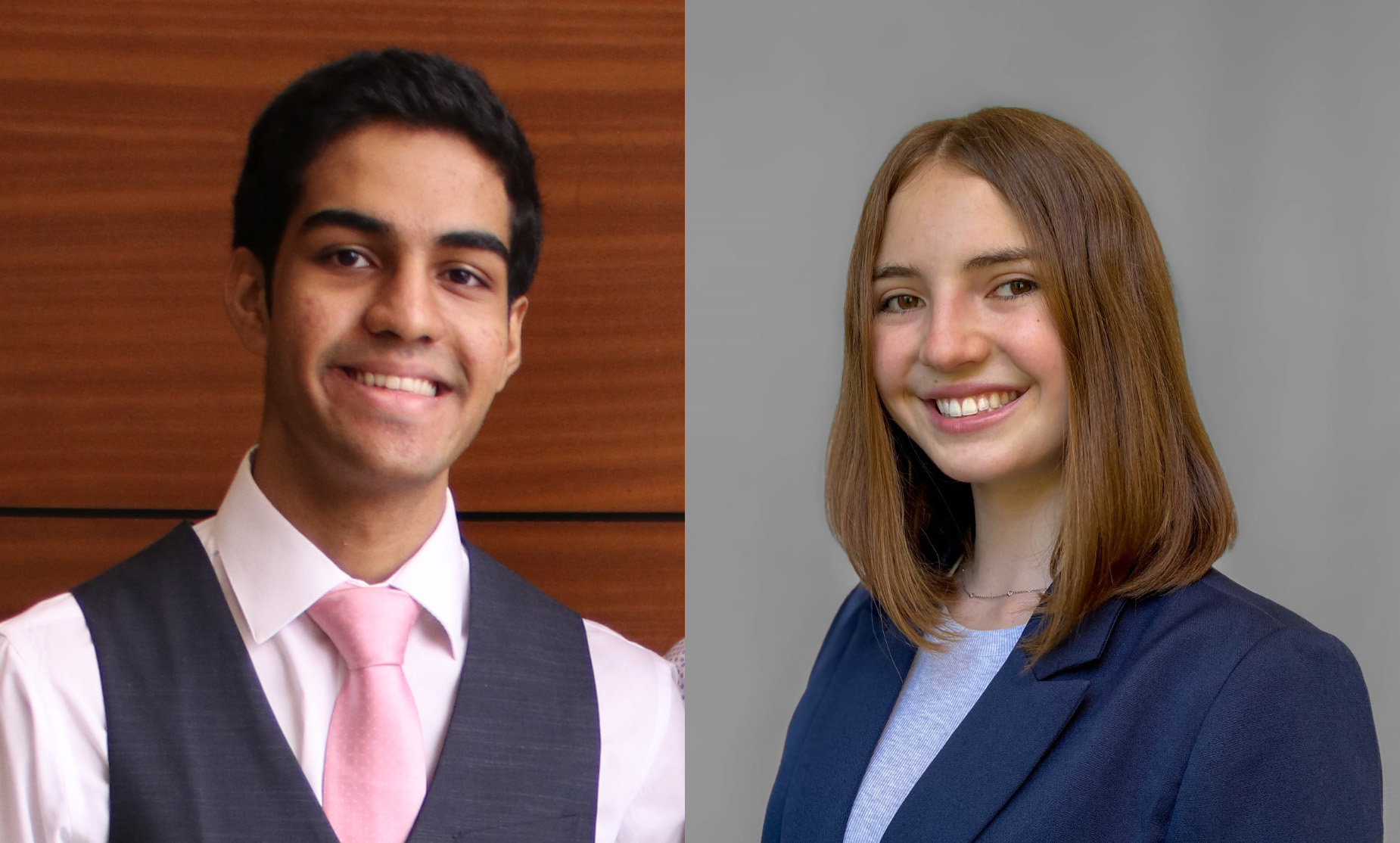Students selected for the 2022 Tracy Undergraduate Research Fellowship
Two undergraduate students have been selected for a 10-week summer research program to carry out research at the Carl R. Woese Institute for Genomic Biology. Karan Samat and Katy Wolhaupter are working in the labs of Joseph Irudayaraj (CGD/EIRH/MME), a Founder Professor in Bioengineering, and Xing Wang (CGD), a Research Associate Professor of Chemistry.

The Mark Tracy Undergraduate Translational Research Fellowship provides undergraduate students from the University of Illinois Urbana-Champaign the opportunity to participate in innovative research with direct applications to the biotechnology industry. The fellowship was established by Mark Tracy, the founder and president of Tracy BioConsulting, LLC. Tracy, a University of Illinois alumnus, was inspired by the Illinois International Genetically Engineered Machine (iGEM) team, sponsored in part by the IGB.
Irudayaraj’s group works on treating retinal artery occlusion, a condition where the retinal arteries are blocked resulting in blindness. To treat this disorder, the lab uses oxygen nanobubbles to revive cells from hypoxia and save retinal tissues. One aspect of their work includes developing mathematical models to understand oxygen diffusion characteristics and its availability across the retinal cross-section. Samat will help further develop this model, especially to estimate oxygen gradients during the initial periods of depletion and to assess the critical time periods of deficit for different oxygen release conditions.
“I love the fact that I could get to know people from different walks of life,” said Samat, a senior in computer engineering. “The ability to interact with people who are advanced in the biology field is beautiful to me because I wouldn't ever learn any of these things if I was just sitting at my computer and coding.”
The Wang group develops affordable and novel diagnostic tools. Current diagnostic methods are mainly complex and lengthy processes that require technical laboratory training. To deal with this challenge, the Wang lab uses DNA nanostructures, which can directly bind to viruses present in a patient’s saliva or blood sample. Their overall strategy offers affordable and sensitive tools for rapid disease diagnostics in point-of-care settings. Wolhaupter, a junior in bioengineering, is currently working on optimizing different aspects of the diagnostic tools, including the assembly of DNA nanostructures on gold nanoparticles, improving the DNA-virus binding, and image processing of signals for the measurement of virus particles.
“Due to COVID-19, most of my classes have been online and I haven’t had the hands-on experience that I think it's crucial to understanding science,” Wolhaupter said. “I find research interesting and rewarding because your efforts in the lab are actually making a difference.”
